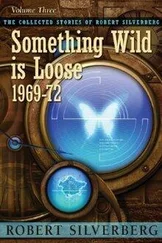Project Itoh - Genocidal Organ
Здесь есть возможность читать онлайн «Project Itoh - Genocidal Organ» весь текст электронной книги совершенно бесплатно (целиком полную версию без сокращений). В некоторых случаях можно слушать аудио, скачать через торрент в формате fb2 и присутствует краткое содержание. Год выпуска: 2012, ISBN: 2012, Издательство: Haikasoru/VIZ Media, Жанр: Старинная литература, на английском языке. Описание произведения, (предисловие) а так же отзывы посетителей доступны на портале библиотеки ЛибКат.
- Название:Genocidal Organ
- Автор:
- Издательство:Haikasoru/VIZ Media
- Жанр:
- Год:2012
- ISBN:9781421550886
- Рейтинг книги:4 / 5. Голосов: 1
-
Избранное:Добавить в избранное
- Отзывы:
-
Ваша оценка:
- 80
- 1
- 2
- 3
- 4
- 5
Genocidal Organ: краткое содержание, описание и аннотация
Предлагаем к чтению аннотацию, описание, краткое содержание или предисловие (зависит от того, что написал сам автор книги «Genocidal Organ»). Если вы не нашли необходимую информацию о книге — напишите в комментариях, мы постараемся отыскать её.
Genocidal Organ — читать онлайн бесплатно полную книгу (весь текст) целиком
Ниже представлен текст книги, разбитый по страницам. Система сохранения места последней прочитанной страницы, позволяет с удобством читать онлайн бесплатно книгу «Genocidal Organ», без необходимости каждый раз заново искать на чём Вы остановились. Поставьте закладку, и сможете в любой момент перейти на страницу, на которой закончили чтение.
Интервал:
Закладка:
The only worry was whether the troops who had fired the antiaircraft missile at the Seaweed had spotted me. I didn’t imagine they had any missiles capable of shooting down a small, fast-falling vehicle like mine midair, but I definitely didn’t want them to be waiting for me when I hit the water below.
“ Estimated contact with water in five seconds’ time.”
The Pod spoke to me.
“Three, two, one.”
I heard a splash, and the Pod entered the water. Having said that, the angle of incidence was less than thirty degrees, low enough to soften the impact so that I barely felt it. The optimally streamlined shape of the Pod meant that the viscosity of the water exerted only the slightest bit of resistance, leaving the Pod to gently decelerate in its own time.
Once the Pod sensed that its speed had dropped enough, it bent its tail like a dolphin and deployed its fins that had hitherto been retracted inside its body. It started swimming. It was quiet below the surface of Lake Victoria, the silence only occasionally broken by whale song or dolphin calls. The Pod’s final destination had already been programmed in; all that was left for me to do was wait and be vigilant for any irregularities. Once in a while water jets would roar overhead, pinging out active sonar, but the Pod was, for all intents and purposes, invisible to them.
Of course we were invisible. The flesh of this Pod was originally from inhabitants of this lake. The Pod was just returning to its natural habitat in a slightly rearranged form.
I wondered whether Williams and the others had gotten out in time, or whether they had shared the same fate as the Flying Seaweed. Come to think of it, I wondered whether the Flying Seaweed had met any particular fate, or whether it had safely returned to base.
I was flush with anxiety. My chest pounded with worry for my comrades.
More than that, though, I worried that I would be too late as usual. That John Paul had already spread his seeds of discord among the people of Lake Victoria and had long since fled the scene, taking Lucia with him.
The impulsiveness of my decision to cut my Pod loose caught up with me. If Lucia was no longer here, then this whole mission was pointless.
The Pod swam along for about an hour before informing me that we had reached our destination. It then warned me of its impending self-disintegration, advising me to double check my diving gear. I did so—I was ready for the water. I opened the lock on the hatch, and the waters of Lake Victoria started rushing into the narrow confines of the Pod. I climbed out of the Pod and shut off its enzyme supply. Finally, I watched it drift away and disintegrate into the water.
3
The lake is here to support our lifestyle.
That was the first thing that came to mind after I reached the shore and turned back to survey the moonlit waters.
Airplane wings. Pods.
Artificial arms. Artificial fingers. Artificial legs. Industrial devices. Porters.
It was to create these things that the artificially engineered dolphins and whales were bred here, waiting for the day when they would be butchered and turned into artificial hands or shock-absorbing Meat Seats for airplanes. The shores of Lake Victoria were dotted with factories, and the poverty-stricken children of the country had three choices: become one of the factory workers who hauled the animals in and dissected them, join the armed forces, or become a whore or rent boy to service the aforementioned workers and soldiers.
European and American transport vehicles regularly flew in to pick up the processed flesh that had been carefully canned so as not to damage the precious muscle fibers. The planes would fly in, take the cargo into their giant bellies, and fly away again. Once in a while the Tanzanian or Ugandan forces would make an incursion over the border to try and reassert their fishing rights, only to be ritually repelled by the foreign-PMC-trained local army that consisted mostly of boys and girls.
Such was life in this country. There was rule of law, but in name only. In reality, the corrupt bureaucrats, in cahoots with PMCs, ruled the country. A world without effective laws meant, in one sense, a world where anything goes, a world of unregulated freedom. But the young boys and girls who grew up here couldn’t afford hopes or dreams because the system robbed them of all future prospects, and then the developed countries swooped in to take the precious artificial flesh that made our own lives free and easy.
I considered the grim irony of the situation as I finished stripping off my diving gear.
I hid in a nearby thicket and waited for nearly an hour to see if Williams or any of the others would show up at the rendezvous point. Nobody did. I resigned myself to going it alone and prepared my approach to the guesthouse. Our original four-man plan was useless to me now.
The shore was too dangerous. The navy corvettes carried out regular checks with floodlights. I didn’t know if there were any land mines or sensors about the place, although I figured it was safe to assume that the closer I got to the guesthouse the more interesting the obstacles would be.
I decided the best way would be through the jungle. I carefully adjusted my nanodisguise. No leaves or branches here. The cliché image of military camouflage was actually much harder to pull off than most people thought. Leaves and branches started withering the moment they fell from a tree and changed in shape and color as they did so. It was pretty difficult to make a foliage-based camouflage that blended in perfectly with the surroundings.
After I was convinced that my camouflage was as good as it was going to get, I started moving. The speed at which I moved varied according to the terrain. Jungles were, by definition, a mishmash of different types of terrain, and even when they seemed impenetrable there was always a path through them. For the trained soldier, at least.
In a jungle such as this one, full of thick shrubbery and ferns and vines, it seemed ridiculous to have to clear a path when there were animal tracks to follow—or, in some cases, trails that had been made by humans. These were the “easy” routes, and anyone without special training would usually opt for these as a matter of course.
The problem was that there were only a few of these types of paths, and the enemy knew them better than you. If you used these you were practically begging the enemy to ambush you. No, there were no shortcuts in the jungle. You had to cut a path through the thick fern forests, cross the streams without bridges, and climb the cliffs. Never take the easy option. The British SAS learned these maxims the hard way, through their bitter experiences in the Malayan jungle in the 1950s.
I advanced carefully through the thicket, covering my tracks behind me.
I was taking the long way round to flank the enemy. The best way to avoid ambushes. It took more time, but the most direct route to the enemy was often also the route directly to hell. Best to assume that the enemy would lay on normal precautions.
Jungle warfare, in other words, was a delicate and complicated affair, not unlike a game of chess.
This was real freedom. The freedom to try and determine the safest route for myself.
It might seem at first glance that there was more freedom in taking the easy way, but doing that could result in a particular type of loss of freedom: death. Freedom for humans involved the ability to avoid danger. Freedom was taking into consideration all the risks and choosing the most suitable course of action.
I moved carefully, one step at a time, constantly testing the path before me. I soon came to the conclusion that it was a fairly ordinary jungle. A good balance of flora and fauna. It had evidently been untouched by the trauma that the nearby lake had experienced these last decades. Not that nature had to always be harmonious or well balanced, of course. Humans might have driven many species to extinction, but Mother Nature did at least as good a job of destroying her own. Evolution was not supposed to be harmonious. Evolution was about adaptation. Many species were born and tested by their environment, and those that were found lacking were summarily dismissed from the face of the earth. Only those who passed the test were allowed to survive.
Читать дальшеИнтервал:
Закладка:
Похожие книги на «Genocidal Organ»
Представляем Вашему вниманию похожие книги на «Genocidal Organ» списком для выбора. Мы отобрали схожую по названию и смыслу литературу в надежде предоставить читателям больше вариантов отыскать новые, интересные, ещё непрочитанные произведения.
Обсуждение, отзывы о книге «Genocidal Organ» и просто собственные мнения читателей. Оставьте ваши комментарии, напишите, что Вы думаете о произведении, его смысле или главных героях. Укажите что конкретно понравилось, а что нет, и почему Вы так считаете.












